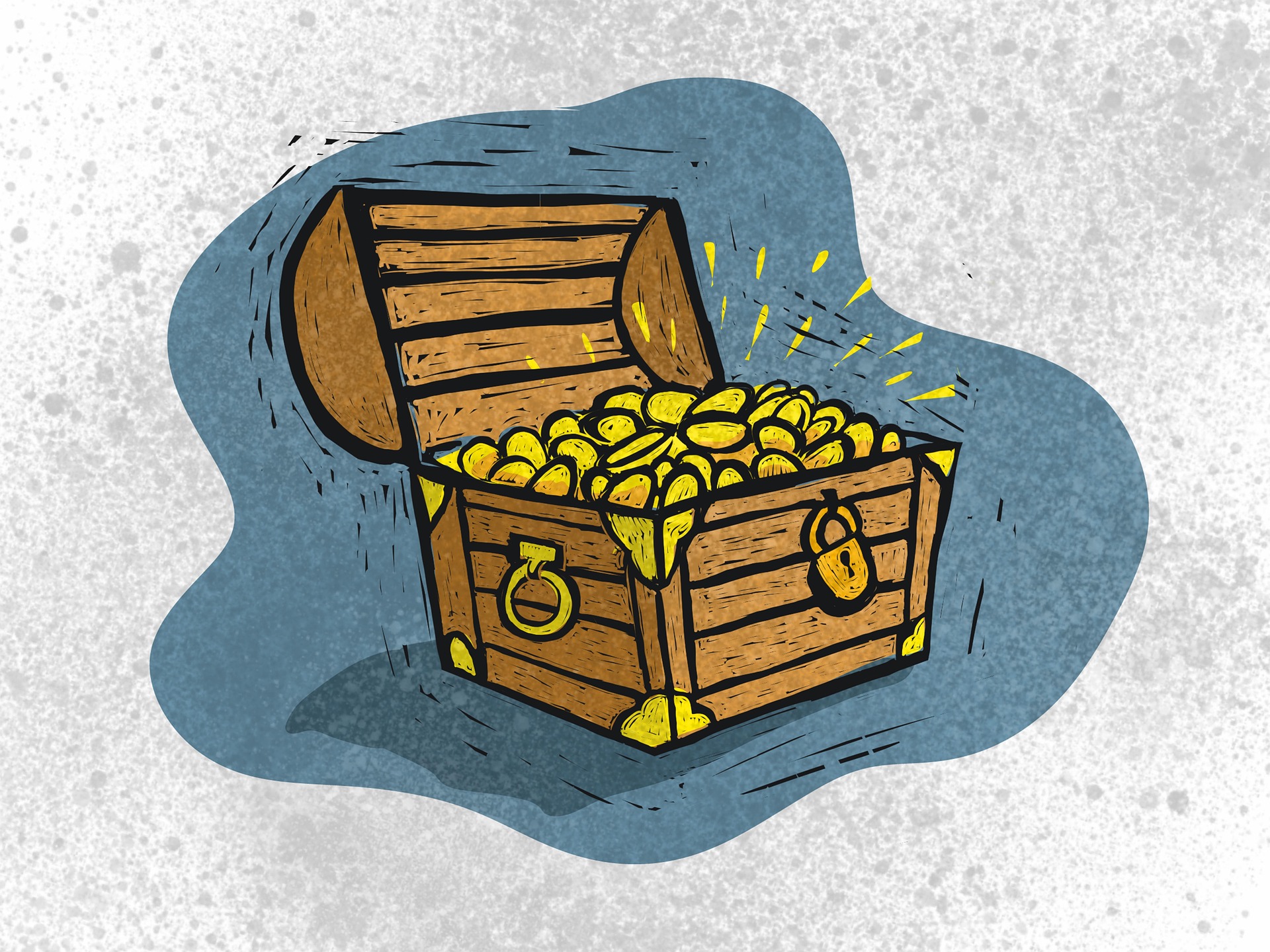
VAT Principles for Gaming “Gold” in Light of Case C-472/24: A Critical Analysis of Virtual Currency Taxation
Can one conceive of circumstances wherein virtual objects from computer games generate tax liabilities reaching tens of thousands of euros? Case C-472/24 Žaidimų valiuta MB v. Lithuanian Tax Inspectorate demonstrates that the demarcation between virtual worlds and fiscal reality has become increasingly permeable.
RuneScape, among the earliest massively multiplayer online role-playing games (MMORPGs), created by British firm Jagex in 2001, has constructed a virtual economy that has operated for decades based upon gold pieces (GP). Within the game, gold functions as a universal medium of exchange, enabling players to purchase equipment, services, and access to specialized areas. Players acquire gold through various mechanisms: completing quests, trading with other participants, defeating monsters, or engaging in crafting activities.
The game’s economy has achieved remarkable sophistication – according to 2022 data, daily transaction volume in Old School RuneScape approximates $6.5 million, with annual volume estimated at $2.3 billion. By comparison, this exceeds the gross domestic product of certain nations.
The game’s popularity and the attributed value of virtual gold precipitated the emergence of Real World Trading (RWT) – the sale of virtual assets for actual currency. Notwithstanding that such commerce violates the game’s terms of service and may result in permanent account termination, this practice has flourished for years, creating a shadow market valued at millions of dollars annually. Jagex consistently combats this phenomenon through increasingly sophisticated detection mechanisms, yet all virtual items remain legally the company‘s property, with players receiving merely limited usage licenses.
The Lithuanian company “Žaidimų valiuta” operated at the nexus of these two realms. The firm purchased gold from players for real currency, subsequently reselling it to other players at higher prices through communication platforms such as Facebook and Discord. The operational scale proved substantial – during 2021-2023, revenues totaled 199,580 euros, 163,428 euros, and 52,476 euros respectively. Paradoxically, despite significant turnover, the company reported tax losses.
When the Lithuanian tax authority demanded VAT payment of 46,688 euros, it initiated a dispute currently pending before the European Court of Justice. The Opinion of Advocate General Juliane Kokott, delivered September 11, 2025, may fundamentally transform the conceptualization of virtual currencies under tax law.
The Advocate General’s Position: Return to Legal Orthodoxy
Advocate General Kokott adopted a decidedly restrictive stance toward attempts to classify virtual gaming gold as virtual currency eligible for VAT exemption. Her argumentation rests upon three fundamental pillars.
First, the Advocate General conducted a precise analysis of the Hedqvist precedent (C-264/14), demonstrating that the Court recognized Bitcoin as qualifying for exemption exclusively because “the sole purpose of the virtual currency Bitcoin is to act as a means of payment and it is accepted for that purpose by some operators.” Concerning gaming gold, the primary purpose is not payment facilitation but entertainment – enabling game progression, equipment purchases, or access to new areas.
Second, the Advocate General introduces a crucial distinction between genuine payment instruments and “gaming utilities.” She explains that “the use of ‘money’ for gaming purposes in the context of the game, even if used there as currency or means of payment, cannot be equated with use in legal commerce as a means of payment between operators.” This distinction proves fundamental – the context of use bears decisive significance for the legal classification of an instrument.
Third, the Advocate General likewise rejects treating gaming gold as multi-purpose vouchers. Gaming gold constitutes, in itself, an electronic service – a finished digital product for use within the game – rather than security for future services.
The most innovative aspect of the Opinion involves the proposal to extend margin schemes to “used” digital services. The Advocate General observes that technological progress has created secondary markets for digital services that function similarly to traditional second-hand goods. The classical distinction between supply of goods and provision of services becomes inadequate in the digital era. This proposal, though revolutionary, demonstrates a pragmatic approach to tax law modernization.
The Polish Approach: Interpretive Liberalism or Systemic Error?
Case C-472/24 proves particularly intriguing as it represents one of the rare instances where Polish fiscal interpretation adopts a more liberal stance than Union interpretation, with both parties citing the same precedent (Hedqvist, C-264/14) while drawing divergent conclusions. Unfortunately, concerns arise that the Polish fiscal authority errs, necessitating correction of the current interpretive line.
In individual interpretation 0111-KDIB3-3.4012.104.2025.2.PJ dated May 14, 2025, the Director of National Fiscal Information concluded that sales of virtual gaming currencies qualify for VAT exemption under Article 43(1)(7) of the VAT Act, treating them as currency transactions.
However, careful analysis of the Polish position reveals numerous serious methodological and substantive errors that undermine its legal credibility.
The Polish fiscal authority’s first error involved recognizing that gaming gold satisfies the criteria for virtual currency definition under AML legislation. In fact, most gaming currencies fail to meet these criteria. First, they cannot be exchanged for real money through official channels – game developers categorically prohibit such exchange in their terms of service. Second, they cannot be transferred between players outside the game environment or utilized to purchase goods in the real world. Third, they lack established equivalent value in real currency.
The second fundamental error involves selective interpretation of the Hedqvist judgment. The Polish authority quoted passages concerning acceptance by transaction parties but omitted the crucial formulation that the “sole purpose” of virtual currency must be “payment function.” Regarding gaming gold, the sole purpose is not payment facilitation but enabling gameplay.
The Hedqvist case concerned an entirely different factual situation – David Hedqvist intended to provide services involving exchange of traditional currency for virtual Bitcoin currency and vice versa. The fundamental characteristic of Bitcoin that the Court deemed decisive was its use as a payment instrument in actual economic commerce between operators, rather than merely within a limited digital environment.
The Polish authority cited passages from the Hedqvist judgment concerning acceptance by “some operators” but failed to analyze the character of such acceptance. Regarding Bitcoin, this concerned acceptance by actual operators in normal economic commerce – online stores, service providers who could accept Bitcoin payment for real goods and services.
Concerning gaming gold, “acceptance” remains limited to the game environment and concerns exclusively virtual items. Moreover, such acceptance often violates game terms of service and may result in account suspension. The Polish authority failed to recognize this fundamental difference between authorized acceptance in real commerce and unauthorized exchange within closed gaming environments.
The Court in Hedqvist precisely determined conditions for applying exemption to virtual “currencies” (I write in the tax sense regarding virtual “currencies” to distinguish terminologically from the concept of “virtual currency” in AML provisions).
Bitcoin satisfied these conditions because it was designed exclusively as an alternative to traditional payment instruments, its architecture and infrastructure serve financial transactions, and its value derives from acceptance in broader economic commerce. Bitcoin is accepted by millions of operators worldwide as payment for real goods and services without regulatory limitations.
Gaming gold differs fundamentally from Bitcoin. It was designed as an element of gameplay mechanics, its primary purpose involves enabling game progression, and its value derives from utility within the specific game context. It may be “accepted” exclusively within the game environment for virtual items, while exchange for real money is prohibited by terms of service and may result in account forfeiture.
The Court warned in paragraph 34 that “terms used to describe the exemptions should be interpreted strictly, since they constitute derogations from the general rule.” Polish mechanical extension of the precedent violates this principle and leads to unjustified expansion of tax exemptions.
Systemic Consequences of Erroneous Classification
Erroneous classification of gaming gold as virtual “currency” leads to unjustified extension of tax exemptions to areas the legislator never intended to cover. The exemption under Article 135(1)(e) of the VAT Directive serves to support fluidity of financial transactions, not recreational activities.
The anticipated judgment in Case C-472/24 will hold significance extending far beyond the specific dispute concerning RuneScape gold taxation. It represents a fundamental challenge confronting contemporary tax law amid rapid digital economy development.
Traditional tax law categories were developed in the analog era and do not always suit classification of new digital phenomena. Gaming gold eludes traditional categories – it is not goods in the physical sense but may be traded like goods; it is not a genuine payment instrument but may perform certain exchange functions within limited contexts.

Founder and Managing Partner of Skarbiec Law Firm, recognized by Dziennik Gazeta Prawna as one of the best tax advisory firms in Poland (2023, 2024). Legal advisor with 19 years of experience, serving Forbes-listed entrepreneurs and innovative start-ups. One of the most frequently quoted experts on commercial and tax law in the Polish media, regularly publishing in Rzeczpospolita, Gazeta Wyborcza, and Dziennik Gazeta Prawna. Author of the publication “AI Decoding Satoshi Nakamoto. Artificial Intelligence on the Trail of Bitcoin’s Creator” and co-author of the award-winning book “Bezpieczeństwo współczesnej firmy” (Security of a Modern Company). LinkedIn profile: 18 500 followers, 4 million views per year. Awards: 4-time winner of the European Medal, Golden Statuette of the Polish Business Leader, title of “International Tax Planning Law Firm of the Year in Poland.” He specializes in strategic legal consulting, tax planning, and crisis management for business.



